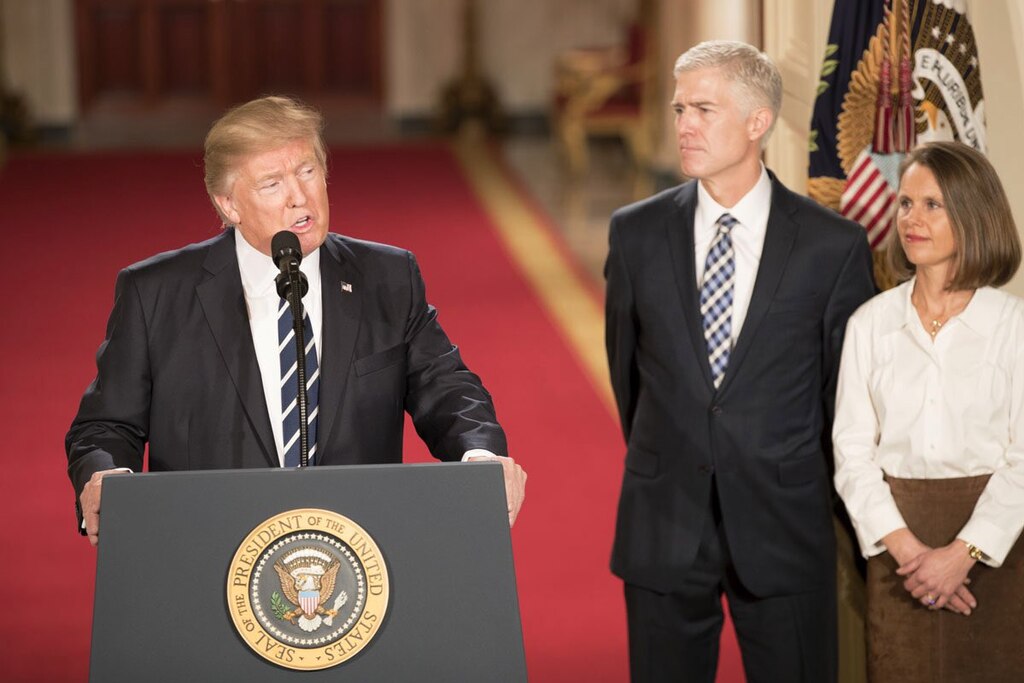President-elect Donald Trump has unveiled his proposed 2025 federal budget, outlining sweeping changes to discretionary spending and entitlements. The $6.5 trillion blueprint promises significant reductions in social welfare programs, coupled with increased funding for defense and infrastructure projects. Critics argue the plan prioritizes tax cuts for the wealthy over investments in the nation’s most vulnerable populations.
Key Spending Shifts: Defense and Infrastructure Dominate
At the heart of Trump’s 2025 budget is a 12% increase in defense spending, bringing the Pentagon’s allocation to nearly $900 billion. The proposal includes expanded investments in advanced missile systems, cybersecurity, and military readiness programs, which the administration claims are necessary to counter global threats.
Additionally, the budget allocates $300 billion for a nationwide infrastructure overhaul. This includes investments in bridges, highways, and rural broadband expansion, aimed at revitalizing aging systems and creating jobs. The administration projects these initiatives will generate millions of employment opportunities over the next decade.
“We are building a stronger America by prioritizing security and economic growth,” Trump stated during a press conference unveiling the budget.
Controversial Cuts to Social Programs
However, the budget slashes funding for Medicaid, food assistance programs, and housing subsidies. The Supplemental Nutrition Assistance Program (SNAP) faces a proposed 28% reduction, while Medicaid spending could decline by $200 billion over the next five years.
These cuts have drawn sharp criticism from advocacy groups and Democratic lawmakers, who warn of devastating consequences for low-income families and the elderly. The Center on Budget and Policy Priorities estimates that the proposed reductions could leave millions without access to basic healthcare and food security.
Education funding is also under scrutiny, with a proposed $10 billion reduction in federal student aid programs. Critics argue this move could exacerbate the student debt crisis and hinder access to higher education for low-income students.
“This budget is a direct attack on working families,” said Senator Elizabeth Warren. “It sacrifices their well-being to fund giveaways for the wealthiest Americans and corporations.”
Public Reactions on Social Media
The proposed budget has ignited a firestorm on social media, with users weighing in on its implications:
- @BudgetWatchdog: “Defense spending up, healthcare down. This budget is a moral failure. #TrumpBudget2025”
- @RealMAGAJohn: “Finally, a president who understands fiscal responsibility. Cut the waste and invest in America!”
- @CareForAll: “Cutting Medicaid and SNAP during an economic downturn? This is a death sentence for the vulnerable.”
- @DefenseFirst2025: “National security should always be our top priority. The defense budget is long overdue for a boost.”
- @StudentDebtSOS: “Education is the key to a better future, but Trump’s budget slams the door shut on students.”
- @RuralRevive: “The infrastructure plan sounds promising, but why does it come at the expense of healthcare?”
Implications for 2025 and Beyond
While Trump’s allies tout the budget as a blueprint for fiscal discipline and economic growth, critics warn of widening inequality and harm to vulnerable communities. As the budget moves to Congress for review, lawmakers face intense pressure to address public outcry and balance competing priorities.
The 2025 budget underscores Trump’s vision for his second term: bolstering defense, driving infrastructure growth, and curtailing federal spending. However, the debate surrounding its impact on everyday Americans remains heated and unresolved.



 Trump Warns Iran as Gulf Conflict Disrupts Oil Markets and Global Trade
Trump Warns Iran as Gulf Conflict Disrupts Oil Markets and Global Trade  Germany and China Reaffirm Open Trade and Strategic Partnership in Landmark Beijing Visit
Germany and China Reaffirm Open Trade and Strategic Partnership in Landmark Beijing Visit  Trump Media Weighs Truth Social Spin-Off Amid $6B Fusion Energy Pivot
Trump Media Weighs Truth Social Spin-Off Amid $6B Fusion Energy Pivot  Argentina Senate Approves Bill to Lower Age of Criminal Responsibility to 14
Argentina Senate Approves Bill to Lower Age of Criminal Responsibility to 14  Netanyahu Suggests Iran’s Supreme Leader Khamenei May Have Been Killed in Israeli-U.S. Strikes
Netanyahu Suggests Iran’s Supreme Leader Khamenei May Have Been Killed in Israeli-U.S. Strikes  Pentagon to Halt Ivy League Programs for U.S. Military Officers Starting 2026
Pentagon to Halt Ivy League Programs for U.S. Military Officers Starting 2026  NYC Mayor Zohran Mamdani Meets President Trump to Tackle Housing Crisis and ICE Detentions
NYC Mayor Zohran Mamdani Meets President Trump to Tackle Housing Crisis and ICE Detentions  Australian PM Calls Alleged Western Australia Terror Plot “Deeply Shocking” After Arrest
Australian PM Calls Alleged Western Australia Terror Plot “Deeply Shocking” After Arrest  Russia Signals Openness to U.S. Security Guarantees for Ukraine at Geneva Peace Talks
Russia Signals Openness to U.S. Security Guarantees for Ukraine at Geneva Peace Talks  Macron Urges Emergency UN Security Council Meeting as US-Israel Strikes on Iran Escalate Middle East Tensions
Macron Urges Emergency UN Security Council Meeting as US-Israel Strikes on Iran Escalate Middle East Tensions  HHS Adds New Members to Vaccine Advisory Panel Amid Legal and Market Uncertainty
HHS Adds New Members to Vaccine Advisory Panel Amid Legal and Market Uncertainty  Philippines, U.S., and Japan Conduct Joint Naval Drills in South China Sea to Boost Maritime Security
Philippines, U.S., and Japan Conduct Joint Naval Drills in South China Sea to Boost Maritime Security  Dominican Republic Unveils Massive Rare Earth Deposits to Boost High-Tech and Energy Sectors
Dominican Republic Unveils Massive Rare Earth Deposits to Boost High-Tech and Energy Sectors  Trump to Address Nation as U.S. Launches Strikes in Iran, Axios Reports
Trump to Address Nation as U.S. Launches Strikes in Iran, Axios Reports  Pakistan-Afghanistan Tensions Escalate as Taliban Offer Talks After Airstrikes
Pakistan-Afghanistan Tensions Escalate as Taliban Offer Talks After Airstrikes  Denver Mayor Orders Police to Protect Protesters, Restricts ICE Access to City Property
Denver Mayor Orders Police to Protect Protesters, Restricts ICE Access to City Property  USITC to Review Impact of Revoking China’s PNTR Status, Potentially Raising Tariffs on Chinese Imports
USITC to Review Impact of Revoking China’s PNTR Status, Potentially Raising Tariffs on Chinese Imports 































